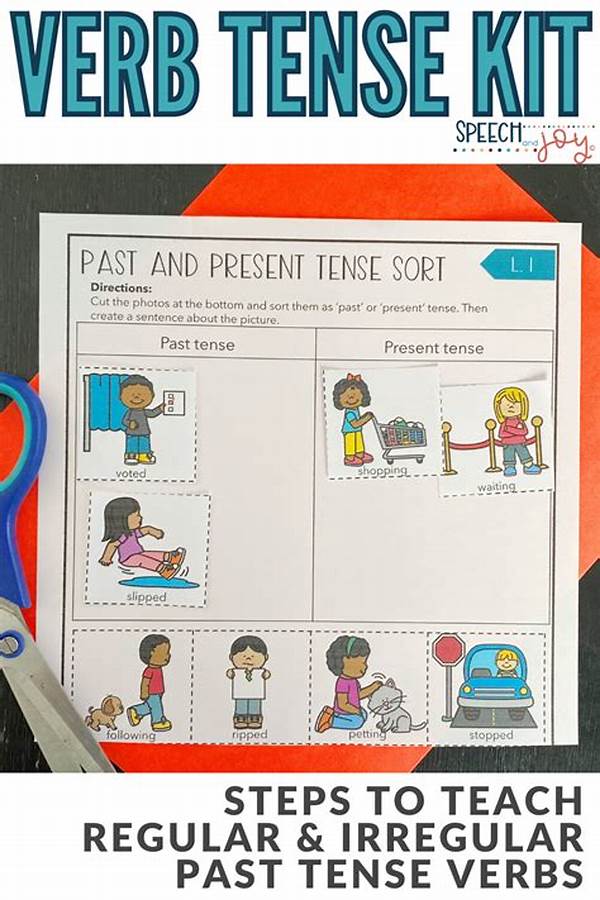Learning a new language can be a thrilling yet daunting journey. Among the various aspects of language learning, mastering verb tenses often presents a significant challenge, especially for beginners. The variations seem endless, and knowing when to use which tense can feel overwhelming. However, understanding and overcoming these challenges is a crucial step toward fluency.
Challenges Faced by Beginners
One of the major hurdles beginners face when delving into a new language is the struggle with verb tenses. They form the backbone of sentence structure, dictating the time frame of the action. Beginner struggles with verb tenses often stem from the language’s rules that may seem unfamiliar or counterintuitive. For instance, distinguishing between simple past and present perfect can be bewildering for native speakers of languages that do not require such distinctions. As a beginner, it’s normal to mix up these tenses and sometimes use them interchangeably. This struggle can lead to misunderstanding in communication, but it’s all part of the learning curve. Embracing these mistakes as learning opportunities is essential for growth and improvement in language skills.
Common Mistakes with Verb Tenses
Beginner struggles with verb tenses manifest in several common mistakes. Firstly, mixing up past, present, and future tenses is typical. Secondly, overusing the present tense out of habit is frequent. Thirdly, confusing regular and irregular verb conjugations often occurs. Fourthly, beginners may misuse perfect tenses, leading to ambiguity. Lastly, switching between tenses within the same context can disrupt an otherwise coherent message.
Strategies for Overcoming Verb Tense Difficulties
Tackling the beginner struggles with verb tenses often requires an array of effective strategies. Firstly, consistent practice is key. Regularly constructing sentences and paragraphs in different tenses helps solidify understanding. Language apps and online exercises provide structured practice that targets specific tenses. Secondly, immersing oneself in the language through listening and reading aids in naturally absorbing the correct usage of tenses in context. Engaging in conversations with native speakers or more experienced language learners offers real-time feedback and learning.
Furthermore, understanding the usage of tenses through storytelling can be beneficial. Creating narratives in different tenses helps internalize their correct application. Beginner struggles with verb tenses diminish as learners experiment with expressing themselves and receive constructive feedback. Patience and persistence, coupled with a supportive learning environment, pave the way for mastery.
Tips for Consistently Practicing Verb Tenses
Consistency is crucial when it comes to overcoming beginner struggles with verb tenses. Set aside dedicated time each day for practice to reinforce learning. Utilize flashcards to memorize different verb forms. Join language learning forums where you can practice with peers. Additionally, keep a journal in your target language, focusing on using a variety of tenses. Interactive games and apps designed for language learners provide engaging practice methods. Mixing different types of content, such as poetry, stories, or news, can provide diverse examples of tense usage, broadening understanding and application.
Building a Strong Foundation in Verb Tenses
Exploring the numerous techniques and tools available can help lessen beginner struggles with verb tenses. For example, leveraging visual aids, such as charts and timelines, to grasp the concept of time in language can be incredibly helpful. These tools provide a graphical representation that often makes abstract concepts more concrete. Additionally, working with a language tutor who can provide personalized guidance ensures that specific problem areas are addressed promptly. They can help break down the complexities of tenses, making them more accessible and less intimidating.
Tools like language exchange platforms offer a chance to practice in real-world scenarios. Real engagement with native speakers accelerates learning by exposing learners to natural language usage and diverse contexts, further enhancing the understanding of tense application beyond textbook examples. This comprehensive approach, combining theoretical understanding with practical application, can significantly alleviate the beginner struggles with verb tenses.
Real-Life Application of Verb Tenses
To effectively tackle beginner struggles with verb tenses, implementing real-life applications is crucial. Whether planning daily routines, recounting past events, or discussing future aspirations, verb tenses help articulate time-based contexts precisely. Writing involves a significant amount of practice, but it’s the listening and speaking components in real-life scenarios that solidify understanding. Engaging in language partners, watching films, or even cooking using recipes in the target language are everyday practices that promote learning.
The transition from understanding to fluency begins by recognizing the importance of verb tenses in expressing oneself clearly. Over time, what initially seemed like beginner struggles with verb tenses become a manageable aspect of language mastery. Practical application enriches the language learning process, making it an engaging and rewarding journey.
Creating an Effective Study Plan
For beginners grappling with verb tenses, crafting a structured and effective study plan is vital. Begin by setting realistic goals, focusing on one tense at a time. Incorporate varied resources such as videos, grammar books, and interactive apps into your study sessions. Regular self-assessment helps identify progress and areas needing improvement, ensuring a comprehensive grasp of verb tenses over time. Taking a systematic approach reduces beginner struggles with verb tenses, transforming them from obstacles into stepping stones toward proficiency.
Persistence and tailored strategies will gradually eliminate these struggles, unlocking a fuller understanding of the language being learned. As beginners become more confident in using verb tenses correctly, they find it easier to communicate ideas and connect with others, making language learning an ultimately rewarding endeavor.
